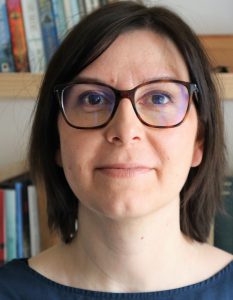 Ágnes Turnpenny is a Research Associate at the Social Care Workforce Research Unit, King’s College London. (564 words)
Ágnes Turnpenny is a Research Associate at the Social Care Workforce Research Unit, King’s College London. (564 words)
On March 13-14 I attended the conference Social and Technological Innovations – The Participation of Persons with Disabilities during the Hungarian presidency of the Visegrad Group. The Visegrad Group (or V4) is an intergovernmental cooperation between Hungary, Poland, the Czech Republic, and Slovakia. Originally established after the fall of the iron curtain in 1991, it aims to promote cooperation and mutual learning based on shared legacies and common challenges in the context of political and socio-economic transformation. An important milestone was reached when the V4 countries (alongside four other post-communist countries) joined the European Union in 2004. In recent years the emphasis on ‘shared values’ has become stronger as the four countries have shifted towards more populist or openly authoritarian regimes.
The conference was organised by the Hungarian Ministry of Human Capacities and brought together representatives of government, civil society (including disabled people’s organisations, professional networks, and service providers), and businesses working with and for people with disabilities. In addition to the plenary sessions featuring invited policy makers and researchers from different countries and representing various organisations such as the European Commission, there were four workshops and a roundtable allowing for more in-depth discussions of topics identified as common challenges by the organisers. These were:
- The participation and inclusion of people with disabilities in all areas of life;
- ‘New’ disabilities and old challenges – availability and access to services for autistic people and people with psychosocial disabilities;
- The closure of large social care institutions and a move towards community-based services;
- Technology and innovations to support everyday living.
Although these challenges are not unique to the V4 countries – if we think about the disability employment gap and the labour market exclusion of people with learning disabilities in the UK or the treatment of autistic people in France – some legacies are felt particularly acutely and give rise to inertia in the region.
Paternalistic attitudes, stigma, weak community cohesion and general distrust are endemic and make the implementation of social care reforms more difficult and also create barriers for the community inclusion of people with disabilities. Full guardianship and different forms of substitute decision making are still commonly used across the region – with the exception of the Czech Republic – depriving individuals of their legal capacity to make decisions.
Social care is still predominantly provided in large institutions with poor infrastructure and often located in rural and isolated communities that offer little opportunities for social or economic participation. Community-based services are scarce or non-existent, and the majority of people with disabilities live in poverty. Although Central and Eastern European countries (including V4 countries) are receiving large sums of money from the European Union to implement deinstitutionalisation policies in social care, progress to date has been extremely limited and it remains to be seen how externally mandated, international human-rights-driven reforms can be successfully implemented in the context of growing inequalities, high levels of deprivation, a rapidly ageing population and increasingly severe labour shortages.
After the conference the V4 countries agreed to establish a High Level Group on Disability to promote cooperation and knowledge transfer in the region – including research, which is largely missing. It increasingly appears that existing notions and experiences from social care reforms in Western welfare states have limited applicability in the socio-economic context of the V4 countries. However, any future developments will be largely dependent on the political situation and remaining opportunities for critical thinking and open debate.
Ágnes Turnpenny is a Research Associate at the Social Care Workforce Research Unit, King’s College London.